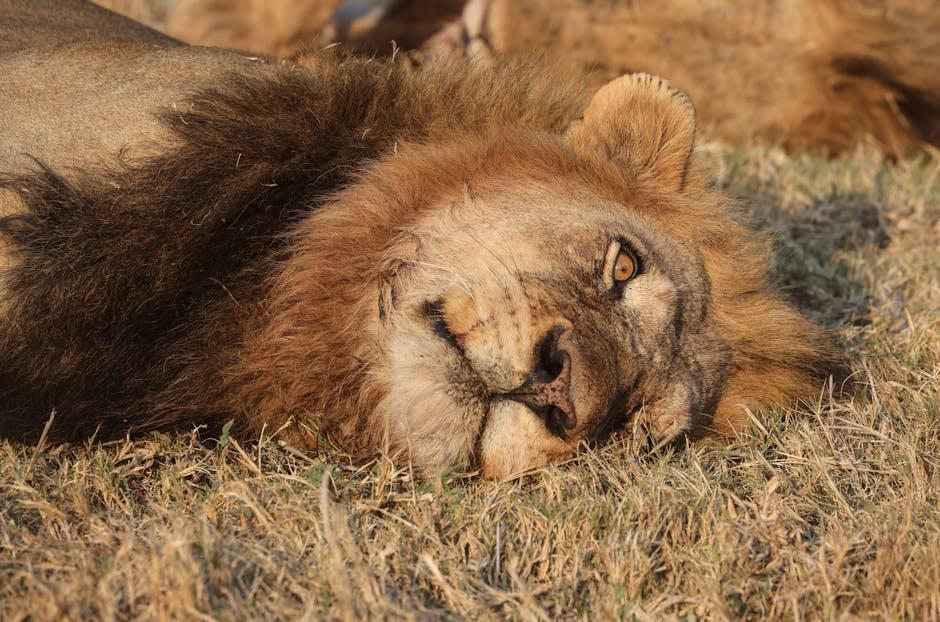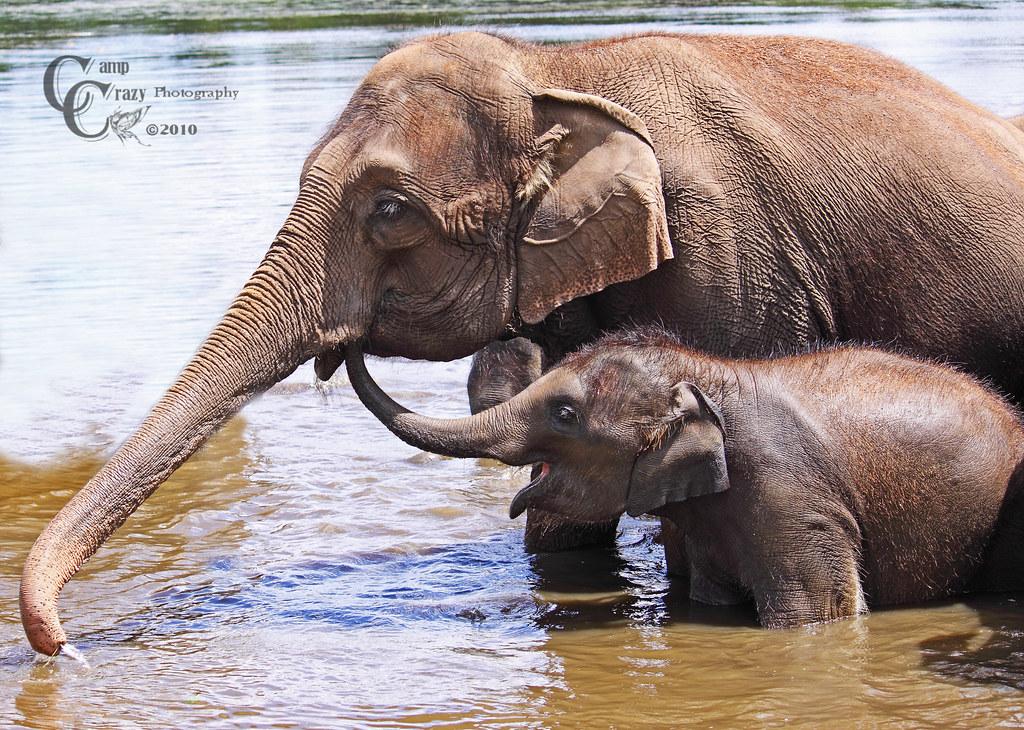In the sun-drenched savannas and lush rainforests of Africa, a vibrant tapestry of wildlife and culture draws millions of tourists each year, eager to witness the continent’s unparalleled natural beauty. However, beneath the surface of this thriving industry lies a complex and often overlooked issue: the exploitation of animals for entertainment and profit. From elephants performing unnatural tricks to lions bred in captivity for petting experiences, the darker side of African tourism casts a shadow over the noble goal of conservation. This article delves into the heart of animal exploitation within the tourism sector, exploring its origins, impacts, and the innovative solutions emerging to ensure that Africa’s majestic wildlife is celebrated and protected, rather than commodified and harmed. As we journey through this critical topic, we aim to illuminate the path toward a more ethical and sustainable future for African tourism, where the welfare of animals is as cherished as the memories they help create.
Protecting Wildlife Sanctuaries with Sustainable Practices
In recent years, the spotlight has turned towards the ethical dilemmas associated with African tourism, especially concerning the exploitation of wildlife. To combat these challenges, sustainable practices are becoming pivotal in ensuring the protection of wildlife sanctuaries. Sustainable tourism aims to foster a balance between conservation efforts and tourism, encouraging practices that do not harm the natural habitat or its inhabitants. By implementing eco-friendly accommodations and promoting responsible wildlife interactions, tourism can support the preservation of these crucial ecosystems.
- Eco-friendly Initiatives: Incorporating solar energy, rainwater harvesting, and waste management systems in lodges and camps within sanctuaries.
- Community Involvement: Empowering local communities through education and employment opportunities to reduce poaching and illegal wildlife trade.
- Visitor Education: Providing tourists with information about ethical wildlife interactions and the importance of conservation efforts.
- Monitoring and Research: Continuous monitoring of wildlife health and behavior to ensure that tourism activities do not disturb their natural life cycles.
By integrating these sustainable practices, tourism can play a vital role in safeguarding the future of wildlife sanctuaries. This approach not only protects the diverse flora and fauna but also enriches the travel experience, ensuring that future generations can witness the majestic beauty of Africa’s wildlife in its natural habitat.

Empowering Local Communities through Ethical Tourism
In the heart of Africa, the allure of wildlife draws countless visitors eager to witness the continent’s magnificent creatures. However, behind this captivating facade lies a pressing issue—animal exploitation in tourism. Ethical tourism aims to reshape these experiences by prioritizing the welfare of animals and the sustainability of local ecosystems. By choosing responsible tour operators, tourists can ensure that their interactions with wildlife are respectful and minimally invasive. This approach not only safeguards the animals but also empowers local communities by promoting conservation as a sustainable source of income.
To contribute to this transformative movement, travelers can embrace the following practices:
- Support Sanctuaries and Rehabilitation Centers: Choose to visit facilities that prioritize the rescue and rehabilitation of animals rather than those that exploit them for entertainment.
- Engage in Eco-friendly Activities: Participate in tours that focus on wildlife observation in natural habitats, encouraging preservation over profit.
- Educate Yourself and Others: Learn about the impacts of animal exploitation and share knowledge to raise awareness among fellow travelers.
By adopting these practices, tourists can play a pivotal role in fostering an ethical and sustainable tourism industry that uplifts both wildlife and the communities that coexist with them.
Innovative Approaches to Wildlife Conservation
In the realm of African tourism, innovative strategies are emerging to combat the challenges of animal exploitation. These approaches aim to balance the allure of wildlife experiences with ethical practices that ensure the welfare of animals. One such strategy is the promotion of eco-friendly safari tours that prioritize wildlife observation from a respectful distance, minimizing human interference. Tour operators are increasingly adopting community-based conservation models, which empower local communities to manage and benefit from wildlife resources, fostering a sense of ownership and responsibility towards animal welfare.
Another significant advancement is the implementation of technology-driven conservation efforts. For example, the use of drones and satellite tracking has revolutionized the way conservationists monitor animal movements and detect poaching activities. Additionally, virtual reality (VR) experiences offer tourists immersive wildlife encounters without physically impacting the habitats. These tech-driven initiatives not only protect animals but also educate tourists on the importance of preserving biodiversity. By integrating these innovative methods, the tourism industry can create a sustainable future where both wildlife and human interests coexist harmoniously.

Balancing Economic Growth and Animal Welfare in Tourism
In the vibrant landscape of African tourism, the juxtaposition of economic advancement and ethical considerations presents a compelling challenge. As the sector burgeons, it is crucial to address the pressing issue of animal exploitation within the industry. African wildlife, a cornerstone of the continent’s allure, must be celebrated in a manner that respects their natural habitats and intrinsic value. Ethical tourism not only safeguards animal welfare but also enhances the authenticity of the travel experience, fostering a deeper connection between tourists and the environment.
To achieve this delicate balance, several key strategies can be implemented:
- Promote responsible wildlife viewing: Encourage tourists to engage in activities that respect the natural behavior and habitat of animals, avoiding any form of captivity or forced interaction.
- Support local communities: Empower local populations by integrating community-based tourism initiatives that prioritize conservation and offer alternative livelihoods, reducing reliance on exploitative practices.
- Educate tourists and operators: Raise awareness about the impacts of animal exploitation and the importance of ethical tourism practices through informative campaigns and training programs.
By prioritizing these approaches, African tourism can thrive economically while ensuring the protection and respect of its diverse and majestic wildlife.
Closing Remarks
In the vast, breathtaking landscapes of Africa, where the golden savannah meets the endless sky, the call for ethical tourism echoes louder than ever. As travelers, conservationists, and global citizens, our collective journey must be one of respect, responsibility, and reverence for the natural world and its inhabitants. Addressing animal exploitation in African tourism is not just a matter of preserving the rich tapestry of life that thrives on this continent, but also a profound opportunity to redefine our relationship with nature.
By embracing sustainable practices and supporting initiatives that prioritize animal welfare, we can transform the way we explore and engage with Africa’s magnificent wildlife. It is a journey that requires awareness, education, and action—one where every step forward is a commitment to safeguarding the delicate balance of ecosystems and honoring the dignity of every creature.
As we close this chapter, let us carry forward the vision of a tourism industry that cherishes and protects the natural wonders it seeks to share with the world. In doing so, we not only enrich our own experiences but also ensure that future generations can witness the awe-inspiring beauty of Africa’s wildlife, thriving in freedom and harmony.


































